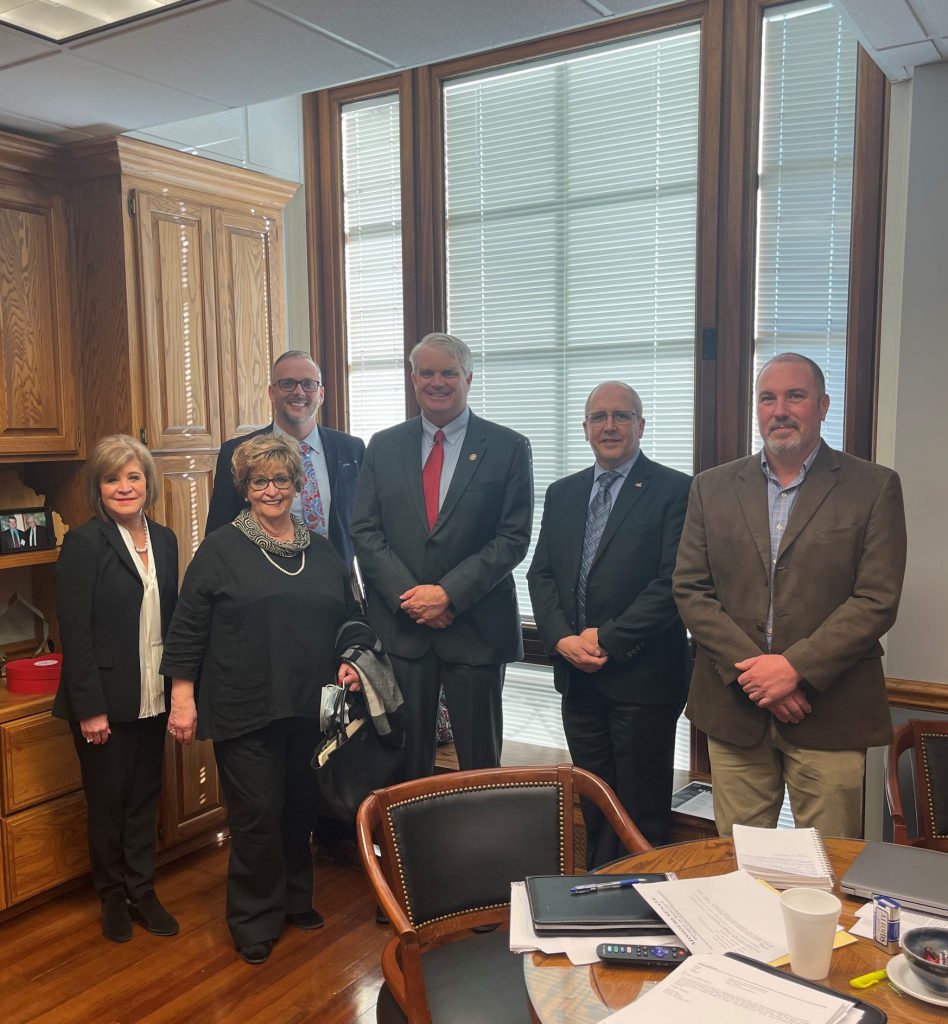
It was a busy week in Jefferson City as my colleagues and I continue to discuss and debate legislation on the floor of the Missouri Senate, in addition to hearing testimony on bills and proposals in committee. For this legislative update, I wanted to talk about a few of my sponsored bills as they move through the legislative process.
On Monday, March 1, I presented Senate Bill 140 to the Senate Agriculture, Food Production and Outdoor Resources Committee. This legislation authorizes a tax credit for fuel retailers who sell a higher ethanol blend of fuel, meaning the fuel contains between 15 percent and 85 percent ethanol. Retailers will receive a tax credit of five cents per gallon for every gallon they sell of the higher ethanol blend. These credits are temporary, nontransferable and nonrenewable.
Incentivizing the sale of a higher ethanol blend will help promote domestically produced fuel, reducing our reliance on imported foreign crude oil. This legislation also benefits Missouri corn producers, as shifting from ethanol 10 to ethanol 15 will lead to more bushels of Missouri corn being used to produce fuel. Missouri is one of the leading producers of corn in the United States, but we trail our neighboring states in support of domestic energy products. I believe that by passing this bill, our state could become a leading producer of ethanol fuel. Additionally, using a higher ethanol blend reduces the need for harmful fuel additives and can even cut down on greenhouse gases. This legislation has the potential to encourage innovation within our state’s No. 1 industry, agriculture, and I believe it is also a step toward cleaner fuel alternatives, which is beneficial for the environment.
About a month ago, I presented Senate Bill 139 to the Senate Education Committee. I am pleased to report the committee passed my bill out last week. Senate Bill 139 establishes the Workforce Development Diploma Program in the Missouri Department of Higher Education and Workforce Development to help students obtain a high school diploma and develop career and technical skills. The program would implement a pay for performance fee structure. A qualified provider would educate the individuals in the program and be paid once the students meet performance milestones similar to the requirements for receiving a high school diploma.
For some adults, it can be intimidating to go back to school and obtain their high school diploma. Many individuals did not leave school for academic reasons, but rather left because they were bullied, had to take care of a family member or needed to work to support themselves or their family. It can be a barrier for individuals who wish to better themselves and continue on a career path. As our state moves forward, I believe we must provide Missourians with opportunities to pursue meaningful employment and support their families — no matter their education level.
A few weeks ago, I presented Senate Bill 74 to the Senate Transportation, Infrastructure and Public Safety Committee, and last week, my fellow committee members and I voted to pass this legislation out of committee. Senate Bill 74 addresses hate crimes against law enforcement officers and first responders. There are a number of protected classes listed in state law, including race, color, religion, national origin, sex, sexual orientation and disability. For certain offenses, such as third and fourth degree assault, first degree harassment, first degree trespass and other offenses, a higher punishment may be applicable if the state believes the crime was committed because the victim is a member of a protected class. This legislation adds the employment of a law enforcement officer or first responder to the list of protected classes.
Every day, our law enforcement officers and first responders put their lives on the line to keep us safe. They encounter people in high-stress situations every day and must respond quickly to help those in need. Unfortunately, police officers and first responders may be harassed or assaulted while performing the tasks necessary to resolve these high-stress situations. I believe we can provide them more protection in statute by adding their employment as a police officer of first responder to the list of protected classes.
Senate Bill 74 also establishes the “Police Use of Force Transparency Act of 2021.” This provision would require law enforcement agencies to collect and report local data on use-of-force incidents involving law enforcement officers to the National Use of Force Data Collection in the Law Enforcement Enterprise Portal administered by the Federal Bureau of Investigation, as well as the Missouri Department on Public Safety. This data will include instances of fatalities and serious physical injuries related to the use of force by an officer. I believe in order to understand use-of-force tactics and the implementation of these practices, we need to begin by collecting data on these occurrences. We can analyze this data to understand when these tactics are used and why, and then work toward improving these practices in our communities.

Last week, I was thrilled to meet with a group of constituents from Caruthersville, including the mayor of Caruthersville, Sue Grantham, and John Ferguson, an economic developer with the Pemiscot County Port Authority, as well as Jana Meredith, Denny Colin and Lyle Randolph.
They were here to discuss Senate Bill 506, which I filed on behalf of the casino in Caruthersville. This particular casino is one of the first 13 original casinos established in Missouri. This legislation updates state policy concerning casinos to help this casino continue to thrive and be an asset for Pemiscot County. It was a pleasure to meet with them, and I am happy they made the drive up to Jefferson City to visit our beautiful State Capitol building.
Senator Jason Bean proudly serves the citizens of Butler, Carter, Dunklin, Mississippi, New Madrid, Pemiscot, Shannon and Stoddard counties in the Missouri Senate.
Please visit Sen. Bean’s official Missouri Senate website at senate.mo.gov/Bean for more legislative and constituent resources.
